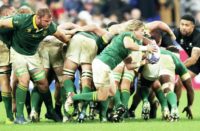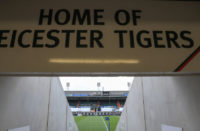CONTRARY to the spirit of an age obsessed with winners and losers, there is nothing wrong with a draw.
Ask Mutaz Essa Barshim of Qatar and his fellow high jumper Gianmarco Tamberi of Italy, who decided between themselves to share the Olympic gold medal rather than prolong a magnificent contest in which they had proved inseparable.
Spin forward a couple of days and the prospect of a second successive squared Lions series was the talk of South Africa.
The tone was in sharp contrast to the joyous message of fellowship spread by those outstanding athletes in Tokyo.
Even Warren Gatland, who was perfectly comfortable with the “no extra time” tour agreement in New Zealand four years ago, was heard extolling the virtues of an additional 20 minutes if the situation in Cape Town demanded it.
But there is something to be said, surely, for a splitting of the spoils.
The drawn Lions series in South Africa in 1955 was among the most compelling in redshirted history; many of the very greatest cricket matches and boxing title fights ended the way they started: that is to say, indecisively.
It is not the modern way – or, indeed, the American way, which amounts to the same thing far too often for comfort.
In the sports that matter Stateside, ties at professional level are rarer than communist cells in Mississippi.
There again, think of the envy felt by the Italian rugby team when Tamberi extended the hand of squareship.
Right now, the Azzurri would happily kill for a draw. Against anyone.



























